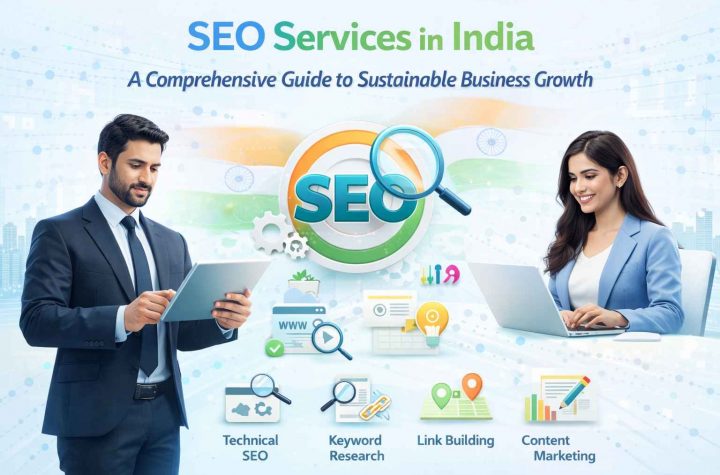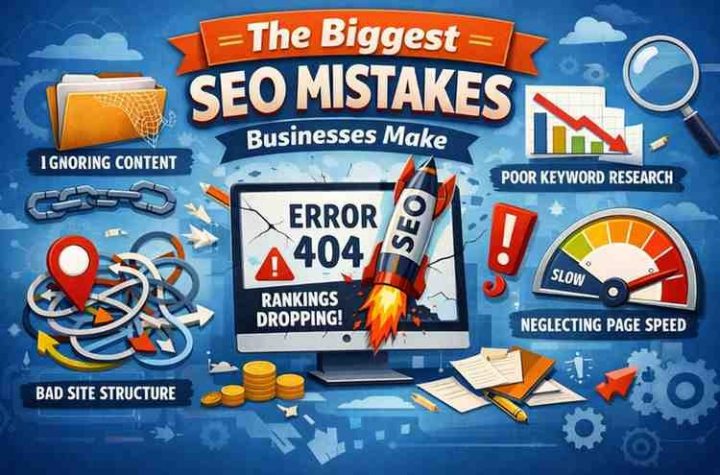
Disavowing links can be a crucial step in protecting your website from Google penalties and maintaining a healthy online presence. In this article, we will discuss the process of disavowing links and provide you with some valuable insights as recommended by experts who offer the best SEO services in India on how to save your website from potential penalties.
Before we delve into the details, let’s briefly explain what disavowing links means. Disavowing links is the act of informing Google that you do not want certain backlinks pointing to your website to be considered as part of your link profile. This process can be vital when dealing with low-quality or spammy links that may negatively impact your website’s search engine rankings.
Now, let’s explore the steps to disavow links effectively:
1. Conduct a Link Audit: The first step is to analyze your website’s backlink profile thoroughly. Various tools, such as Google Search Console, Ahrefs, or Moz, can assist you in identifying the links pointing to your site. Evaluate the quality and relevance of each link, paying particular attention to any suspicious or low-quality ones.
2. Create a List of Toxic Links: Once you have identified the links you wish to disavow, compile them into a comprehensive list. Ensure that you include all the necessary information, such as the URL of the linking page and the anchor text used.
3. Contact Webmasters for Removal: Before disavowing links, it’s generally recommended to attempt contacting the webmasters of the sites hosting the toxic links. Politely ask them to remove the links, explaining the reasons behind your request. While this step is not always successful, it’s essential to demonstrate your proactive approach to Google.
4. Disavow Links with Google: To officially disavow links, create a disavow file in a .txt format. List all the URLs you want to disavow, each on a separate line. You can also disavow an entire domain by prefixing it with “domain:”. Once you’ve created the file, submit it through the Disavow Links tool in Google Search Console. Note that the disavowal process can take some time, and Google may not immediately act on your request.
5. Monitor Your Link Profile: After submitting the disavow file, continue monitoring your backlink profile regularly. Use the same tools mentioned earlier to ensure that the toxic links are no longer impacting your website. Additionally, stay vigilant about any new incoming links that may pose a threat and repeat the disavowal process as needed.
While disavowing links can help protect your website, it’s equally important to focus on building a strong and natural link profile. A leading digital marketing agency can help you with this task with maximum effectiveness.
Here are some additional tips to complement the disavowal process and enhance your SEO efforts:
1. Quality Content and Linkable Assets: Create high-quality, valuable content that naturally attracts links from reputable sources. Develop linkable assets such as infographics, guides, or case studies that others in your industry would find useful and be willing to link to.
2. Guest Blogging and Outreach: Reach out to relevant websites and offer to write guest posts or contribute articles. This strategy allows you to secure authoritative backlinks while showcasing your expertise to a wider audience.
3. Social Media Promotion: Utilize social media platforms to share your content and engage with your target audience. Encouraging social sharing can potentially lead to more exposure and organic link acquisition.
4. Local Citations and Directories: For local businesses, ensure your website is listed accurately and consistently across relevant local directories. This can contribute to your website’s credibility and improve local search rankings.
In conclusion, disavowing links is a vital step in safeguarding your website from potential Google penalties. By conducting a thorough link audit, actively disavowing toxic links, and focusing on building a strong link profile, you can ensure the long-term health and visibility of your website in search engine results.
Remember, SEO practices continually evolve, so it’s important to stay updated with the latest guidelines and adapt your strategies accordingly. Consider consulting with a professional SEO services in India, such as a leading digital marketing agency, to ensure you’re implementing the best practices for your website’s SEO success.




More Stories
SEO Services in India: A Comprehensive Guide to Sustainable Business Growth
Which business directory is best for SEO?
Types of SEO: What Every Business Should Know